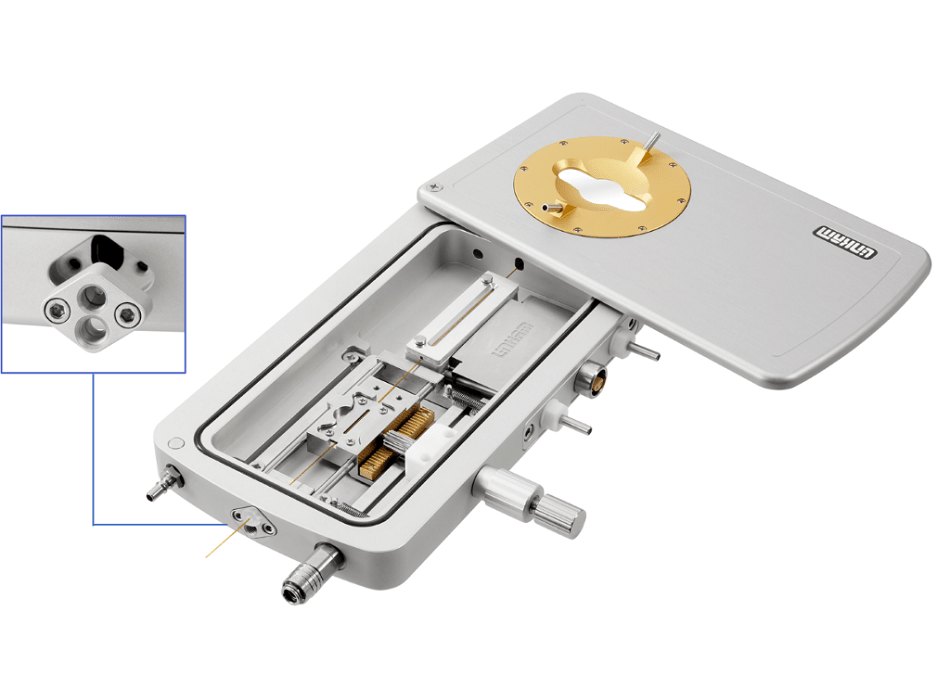
Linkam CAP500 stage with diamond-shaped capillary holder
Sample characterisation experts Linkam Scientific Instruments has added a diamond-shaped capillary holder insert to its CAP500 stage, allowing the temperature control stage to be quickly and easily adapted to hold either of two capillary sizes simply by rotating the capillary holder.
The CAP500 stage is designed to study samples in in a high pressure quartz capillary, controlling the temperature of a capillary section up to 50mm in length from < -195°C up to 500°C. Samples can be pumped through the capillary at a specific pressure using a pump and pressure gauge to investigate the flow dynamics and rheology of the sample with respect to temperature and pressure using a range of microscopy and spectroscopic techniques including brightfield, IR, X-ray or Raman.
The capillary is inserted through the body of the chamber and housed in a 1.0mm ø channel inside a 50mm silver block. The block itself has been designed and engineered to provide a uniform temperature across the length of the capillary. Capillaries loaded into this channel can be moved 25mm in the X direction and 3.5mm in the Y direction using the XY mechanism to allow for observation across the length of the sample in the capillary.
The standard capillary sizes are 1/8” and 1/16”, but customised diamond-shaped inserts allow for different-sized capillaries with an outer diameter of ≤ 0.6mm. A Dual Capillary CAP500 option is also available - two capillaries can be mounted side by side, then the CAP500’s XY mechanism can be used to move each capillary over the light aperture for imaging.
The CAP500 is used extensively to measure flow dynamics as a function of temperature and pressure. In one recent study1, the CAP500 was used alongside Raman Spectroscopy to investigate the formation temperature of talc, to improve the understanding of its mineralization process (see Figure 1). In another study2, it was used to measure the tensile strength of methane hydrate in marine or geological settings. The CAP500 stage has also been used to study geological fluid inclusions created in quartz capillaries.

Figure 1. CAP500 and IR setup for in situ analyses of the vapor phase within a fused silica capillary capsule containing dolomite and water
- An Experimental Study of the Formation of Talc through CaMg(CO3)2–SiO2–H2O Interaction at 100–200∘ C and Vapor-Saturation Pressures (open access) https://www.hindawi.com/journals/geofluids/2017/3942826/
- Contactless probing of polycrystalline methane hydrate at pore scale suggests weaker tensile properties than thought (open access) https://www.nature.com/articles/s41467-020-16628-4